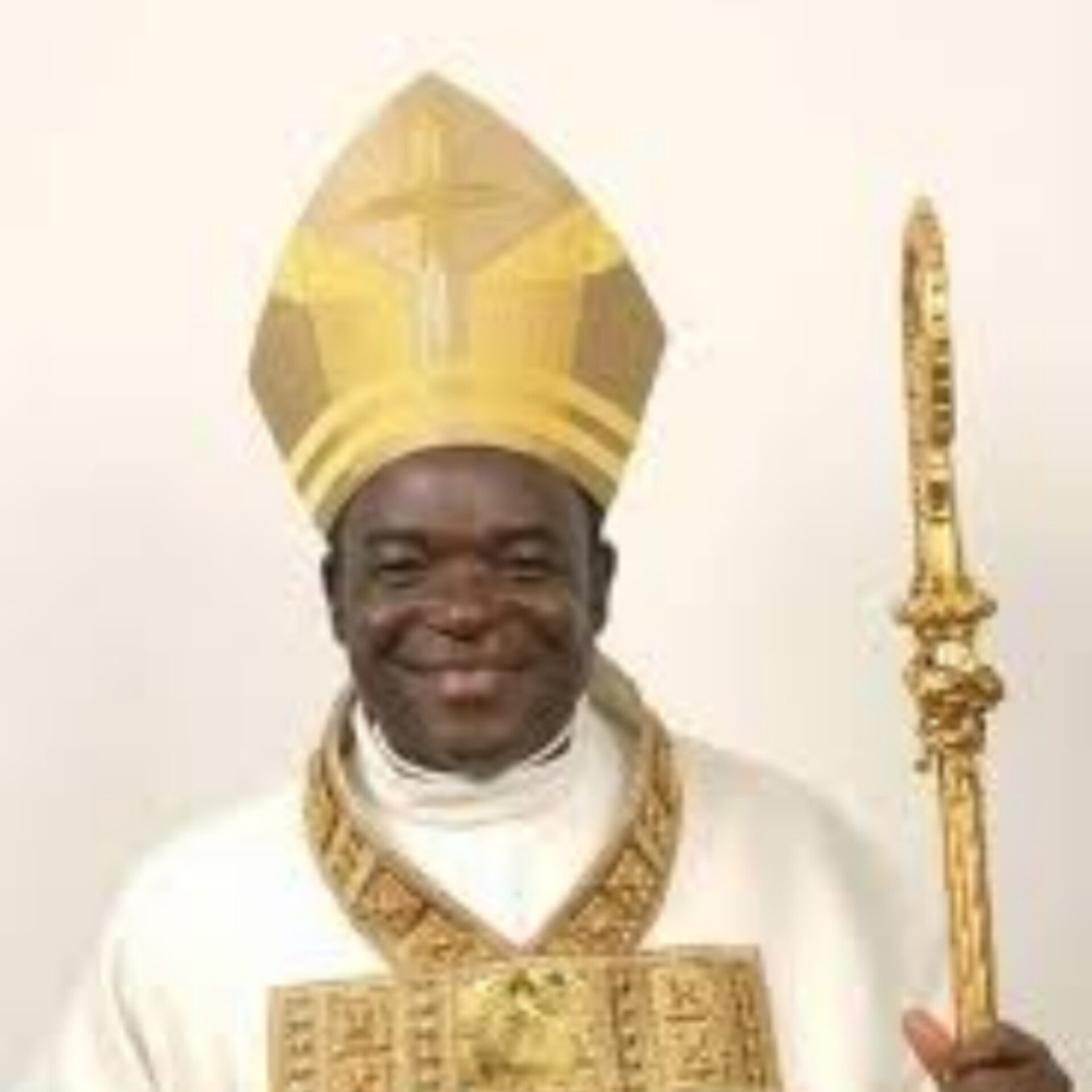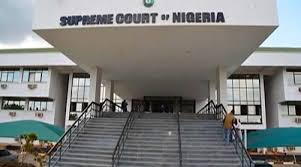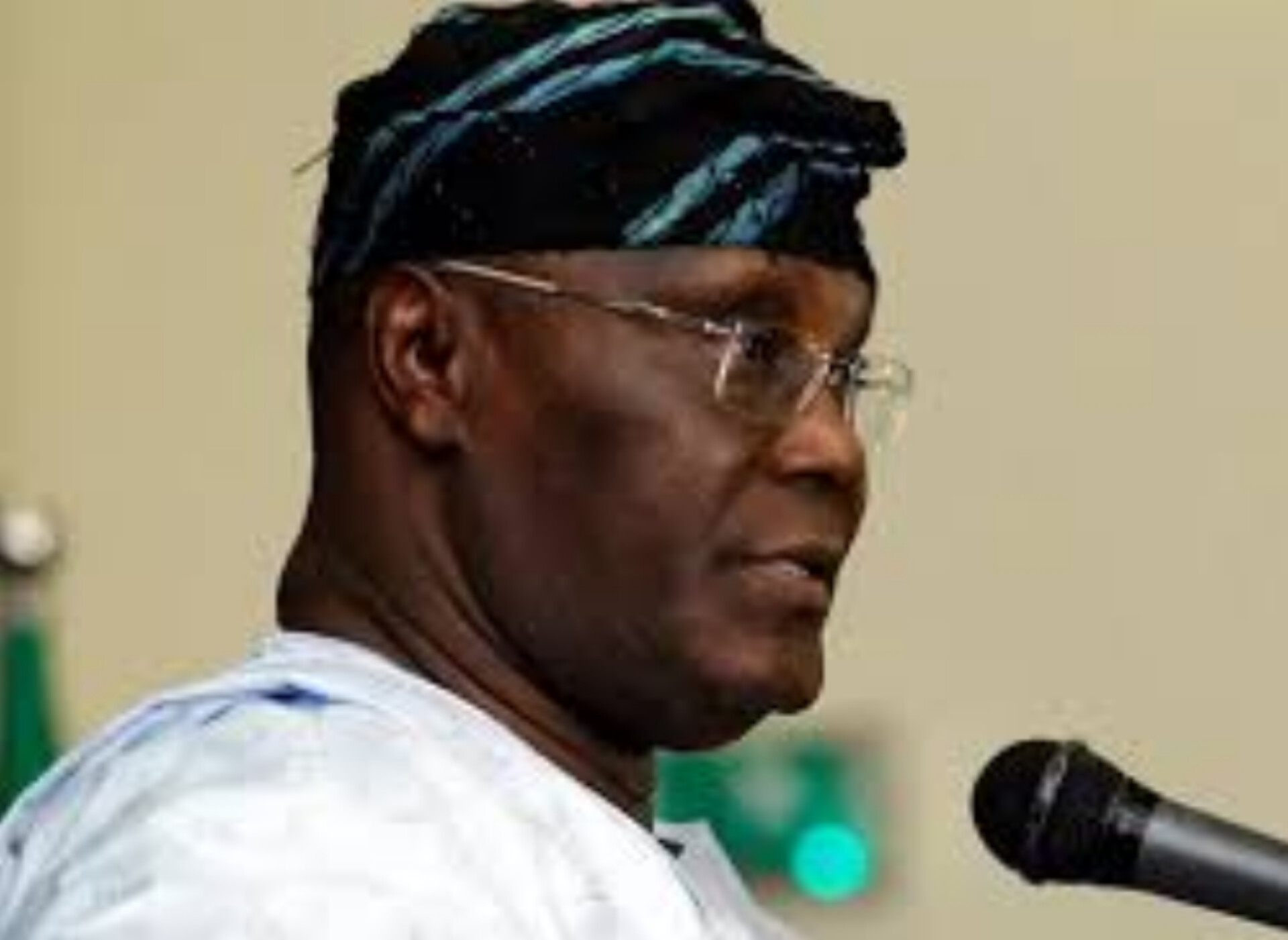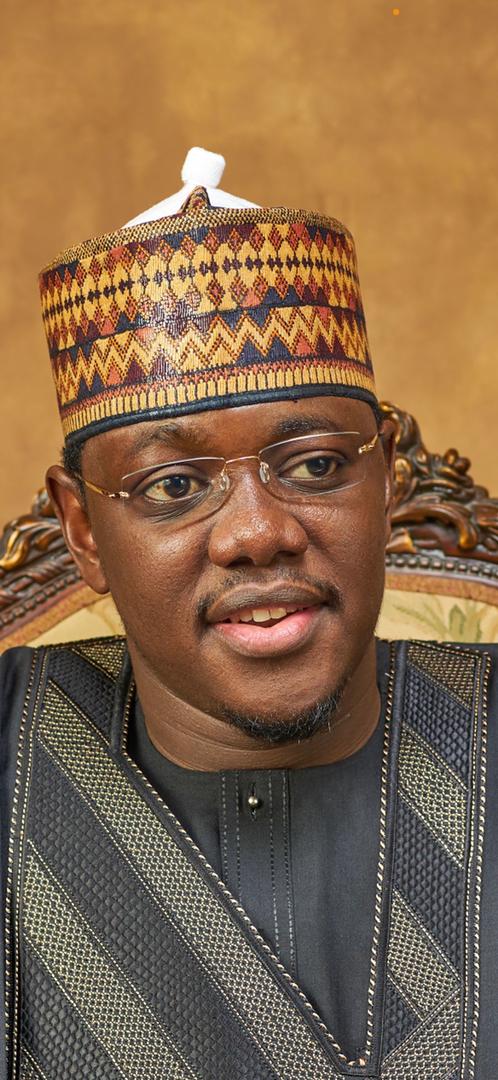1: I send hearty Easter greetings to all Nigerians. I am sure that many Nigerians are already used to the fact that during the annual celebration of the two most important events in the Christian calendar – Christmas and Easter – I have the practice of writing a national Message in which I reflect on the meaning of the Christ-event for us as a People and Nation. While I am aware that many people look forward to reading my Messages every year, as I have done over the past many years, there are those, I believe, who must be wondering what Bishop Kukah is going to say again, or whether he is not tired of speaking with Buhari now gone. My messages will continue for some time and have nothing to do with whoever is in power.
Every religious leader has an obligation to deliver these Messages to his people. In doing this, I am only joining my voice with that of thousands of Priests and Bishops here and elsewhere.
I know there are many who think that when I speak, I am attacking government or that I am taking sides with some imaginary opposition. Unfortunately, people erroneously believe that God and Caesar do not mix. The truth is that, God is the Creator of All, including Caesar! Caesar’s obligation is to be inspired by the way and will of God and govern according to His will. When those who govern seek the will of God, public service becomes a call to use the resources of state for the good of all.
In keeping with my discipline as a priest of the Catholic Church, I do not carry the partisan flag of any political party or hold brief for or against one set of politicians or another. What I try to do is to highlight the issues facing us as a Nation, provide moral clarity, and offer some policy options from where I stand. From where I stand, I often see missed opportunities, wrong turns likely to lead to cul-de-sacs. I try to differentiate between mistakes of the head and those of the heart. Often, our destination may be the same, but the routes often differ and what I believe I should do in conscience is offer perspectives. I allow for the fact that of course, I could be wrong, but then, Democracy is about letting our voices be heard. While those in power and politicians talk to the people, as a priest, I talk with the people. But when our voices and views are taken together, we can compose a beautiful melody for a united nation. In this way, government’s vision and policy become our vision and policy, thus creating a common threshold of trust. In keeping with the exhortation of St. Paul, we must preach this Gospel, welcome or unwelcome. So, fellow citizens, a very happy Easter to you all.

The great Bishop Fulton Sheen, in his timeless book, Life of Christ, stated that: There are only two philosophies of life. One is the feast and then the hangover, the other, the fast and then the feast. Deferred joys purchased by sacrifices are always the sweetest and most enduring. Against this backdrop, it is easy to see why the Nigerian dream has turned into a nightmare over the years. Our leaders chose the feast rather than the fast. We are today reaping what we sowed yesterday. For over sixty years, our leaders have looked like men in a drunken stupor, staggering, stumbling and fumbling, slurring in speech, with blurred visions searching for the way home. The corruption of the years of a life of immoral and sordid debauchery have spread like a cancer destroying all our vital organs. The result is a state of a hangover that has left our nation comatose. Notwithstanding, Easter is a time to further reflect on the road not taken. It is a time to see if this Golgotha of pain can lead us to the new dawn of the Resurrection. Nigeria can and Nigeria will be great again. Let us ride this tide together in hope.
Many Nigerians are wondering and asking questions such as, what time of day is it? Where are we? How did we get here? Where is here? Where are we going? How long do we still have to travel and are there any map readers to tell us if we are on the right path? Neither I nor anyone can answer all these questions, but together, we can think through them. Let us not all pretend to be ignorant. It is not so much who knows what. It is rather a matter of accepting the challenges, having the honesty to ask the most difficult questions, and holding each other accountable. In this way, the road may be long, but it will be easier to travel together in faith and confidence.
Even though it is not daybreak yet, all of us must agree that the night is far gone. The only reason why I am confident that daybreak may not be too far away is because of my faith in God and the power of the risen Christ. There could not be a better metaphor for addressing the situation we are in now than to turn our attention to the meaning of Easter and the promises that are contained in the meaning of Christianity. St. Paul said: The night is far spent, the day is at hand: let us therefore cast off the works of darkness, and let us put on the armour of light (Rom.13:12). With the risen Christ, we can dispel encircling clouds of doom.
The belief in the resurrection is what sets Christianity apart from other world religions. It was inconceivable, unfathomable, indescribable, preposterous and incomprehensible. How could a dead man rise from the dead? Unfortunately for us, those soldiers who had been stationed at the tomb, men whose careers and life depended on carrying out the task of guarding the tomb confessed that they were like dead men because, at the resurrection, His appearance was like lightening and clothes were as white as snow (Mt. 28:3). The accusers of Jesus and his enemies, rather than seeking trial for them for their negligence became fraudulent conspirators. We hear that: The chief priests met with the elders and gave large sums of money to the soldiers and said, you are to say that the disciples came at night and stole the body while we were asleep (Mt. 28:12-13).
The resurrection confirmed that indeed, Jesus was the Messiah, the Christ promised by the prophets for hundreds of years. The event of the resurrection split human history, becoming the marker of time and events. Everything else in human history from took place either before Christ (BC) or after Christ (AD). Consider the following: His birth announced peace to ALL men and women of good will (Lk. 2:14). Salvation is to be found only through him alone. In all the world, there is no other name through which salvation is given (Acts 4:12). It is the reason why at the name of Jesus, every knee should bow and all proclaim that Jesus is Lord (Phil. 2:10). If we Christians take the resurrection of Jesus to heart, then we will appreciate that suffering is a prelude to a better and more rewarding life. It might be argued that Nigerians have suffered enough. True, but the good life is a shifting aspiration with no recede to enable Nigeria rise again. Amen.
The important thing is to make it feasible for every generation to pursue happiness with less stress. We Christians still face the challenge of following Jesus truly.
Millions of people say that they believe in Jesus. Merely calling Jesus Lord is not enough because Jesus said; Not everyone who says to me, Lord, Lord will enter the kingdom of heaven (Mt. 7:21). Millions of people believe in Jesus, but this is not enough because their perception of Jesus is often flawed. There are those who call him one of the prophets of God. Some call him a good man. Others think He was a teacher who worked miracles and of course, the Jews who considered him a blasphemer because of His claims to being God. However, what people believe about my father is not important. It is what I know about my father that is important. As such, too many Christians are often misled by the perceptions of others who say they believe in Jesus but are not Christians. It is the resurrection that confirmed Jesus as being the Christ, the son of God. Jesus is not the Son of God in a biological sense, but is so in the incarnation, that is, God taking the human form without sin. Had he not risen, he would have been Jesus, a good man who perhaps lived and preached in a particular period of time. The world would have since forgotten of him or remembered him like other good men.
The coming of Jesus was foretold by prophets over seven hundred years before He came. The world expected Him. The only challenge was no one knew when it would be. His place of birth (Bethlehem), circumstances of birth (by a virgin) were foretold. The Lord himself will give you a sign, a virgin shall conceive and bear a son, his name shall be Emmanuel (Is. 7:14). The Lord says, Bethlehem, you are one of the smallest towns in Judah, but out of you will come a ruler of Israel (Mic. 5: 1-2). The whole of the book of Isaiah chapter 53 gives a detailed account of the sufferings that would be endured by the Messiah. He is like a lamb led to the slaughter, never uttering a word. He was arrested and sentenced and led off to die and no one cared about his fate… He was placed in a grave with the wicked… the Lord says, it was my will that he should suffer, his death was a sacrifice to bring forgiveness (Is. 53: 7-10). These prophesies were his letter of credence, the proof of the claims that had been made.
Against this backdrop, the early Christians faced a dilemma. Jesus, their Master had died the painful and horrible death meant for criminals. Against the run of play, He had risen indeed as He and the prophets before Him had said He would. The event generates controversies. His bedraggled apostles were still reeling from it all when Jesus says they are to proclaim His message to the whole world (Mt. 28:15). They have neither a headquarters nor do they even have a start-up capital. Jesus tells them to simply depend on the good will of people, but merely eating whatever is set before them (Lk. 10: 8). Their only currency of exchange is faith and peace. Whatever house you enter, let your first words be, ‘Peace to this house’ (Lk. 10:5).
Preaching the resurrected Christ is not merely a statement of a historical fact that has become associated with the Easter celebrations. Easter is about coming to the terms with the complex reality that; God’s ways are not our ways, His thoughts not our thoughts (Is. 55:8). Preaching and bearing witness to the resurrection came with a heavy price for the early Church. The apostles were imprisoned, tortured, flogged, humiliated and killed. As far as confronting the throne of power is concerned, as far as challenging the structures of injustice and abuse of power are concerned, nothing has changed. Today’s Pilate is still firmly on his throne of arrogance, hubris and egotism. The persecution of Christians is still rife all over the world. Much as we try to pretend, persecution is rife in our country through brutal and subtle means whether by outright denials of basic rights or threats and blackmail. In all this, we cling to the words of the great song, Onward Christian soldiers which says, Crowns and thrones may perish, Kingdoms rise and wane, but the Church of Jesus constant will remain. Those who preach a discounted Christianity, focusing on quick solutions, miracles, drama and theatre, claiming that we were not born to suffer, suggesting that we were destined for prosperity, must choose between their cross-less Christianity and a Christ-less cross of human suffering which tyrants often afflict their people. Both have no salvific value.
Today, things are hard. Really very hard in Nigeria. I see it on the faces of our people every day. We are in one of the most difficult phases of our national life. But we are not alone. However, I am optimistic that our country will heal from the scars of hunger and destitution that the wounds of physical and psychological violence will heal. But first, we Christians must wake up to our duties and responsibilities of what it is to be Christian as an individual, a family, a community or in public life. There are tough times ahead. Politics alone will not change the fate of our country, neither will all the right economic policies or positive ratings by the world’s agencies. We need to do more. Nigeria has lost its soul and the evidence lies before us all. The mindless corruption and debauchery in high places is merely a symptom of a deeper rot. It is not the real disease. We must recover our lost soul. Christians cannot discount our high moral values simply because, this is Nigeria and, things are hard or everyone is doing this or that. With nothing but the moral force of faith in the risen Jesus, 11 semi-illiterate men, pursued by the roman authorities, finally converted the empire itself. If you doubt the force of true believers, think again. Not by power nor by might, but by my spirit, the Lord says.
The evil that we see around us is a consequence not a cause. We have relied on tools of social sciences to create all kinds of doomsday scenarios about the impending end of Nigeria. In the 90s, the pessimists told us that we were on the road to Rwanda. Time passed and we never got to Rwanda. Then the experts wrote so many opinion and editorial articles claiming that rather than Rwanda, we were heading for Somalia. We have arrived at none of these destinations not due to poor map reading but due to superficial and scaremongering reading of history and analysis of social dynamics of society. Faith renews a people and a nation. St Paul said it all: To have faith is to be sure of the things that we hope for, to be certain about the things we cannot see……No one can please God without faith (Heb. 11: 1, 6). I leave you with four points to ponder on.
First, the federal government must come up with a robust template for how it wishes to reverse and put us on a path of national healing. This must include a deliberate policy of inclusion that will drastically end the immoral culture of nepotism. The government must design a more comprehensive and wide-ranging method of recruitment that is transparent as a means of generating patriotism and reversing the ugly face of feudalism and prebendalism.
There is need for a clear communications strategy that will serve to inspire and create time-lines of expectations of results from policies. There is need for clarity over questions of the Who, What, When, and How national set goals are to be attained and who can be held accountable. This will take us away from the current Communications-by-announcement-of-appointments policies as if this is all that government is doing.
Second, the notion of rejigging the security architecture is a hackneyed cliché that is now at best, an oxymoron. It is difficult to fathom our current situation regarding the ubiquity of the military in our national life. It is impossible to explain how we can say we are in a civilian Democracy with the military literally looking like an army of occupation with an octopussean spread across all the 36 states and Abuja. This has very serious consequences both for its professionalism, its integrity and perceived role in protecting society. No other person than the immediate past Chief of Defense Staff, General Lucky Irabor who recently referred to the military as facing the dilemma of what he called, see finish. It is now difficult to say whether the persistence of insecurity is a cause or a consequence of military ubiquity. Trillions of Naira continue to go into bottomless pits with little measurable benefits. Our military’s professionalism cannot be diluted by the recruitment of hunters, vigilante groups and other unprofessional and untrained groups. This is not sustainable because it leaves the military open to ridicule and perceptions of surrender. Fighting insecurity is now an enterprise. I believe our security men and women can defeat these criminals in a matter of months. All we hear and see are fingers pointing to the top. No, this must end. The alternative is too frightening to contemplate. The time was yesterday, but today is still possible.
Third, it is cheering to hear that the President has announced that kidnapping and banditry are now to be treated as acts of terrorism. If so, we need to see a relentless and implacable plan to end this menace with a definite date line for bringing these terrorists to their knees, no matter what it will take. Without a timeline for eliminating these evil, despicable, malevolent and execrable demons from among us, our future as a people will be imperiled. I commend the government over its promise to stop paying ransom to bandits and kidnappers. However, merely going to the forest and returning with victims leaves the government open to suspicion from citizens. The government needs to show results of a well co-ordinated plan and time lines to bring back all citizens in captivity and give us back our country.
Fourth, I encourage the President to continue on the path of probity, to take further steps to cut down the overbearing costs of governance and to put in place more comprehensive plans towards achieving both food and physical security across our nation. Merely distributing money through already corruption riddled structures is not enough and diminishes the dignity of our citizens. No one needs to line up to receive aid when we are not in a war. Give our people back their farms and develop a comprehensive agricultural plan to put our country back on the path of honour and human dignity. May our blessed Mother who stood by the cross of Her son, watched Him die and laid to rest and rejoiced to see Him rise, intercede for our dear country. Nigeria must embrace the blessings of the risen Christ so as to heal again.




